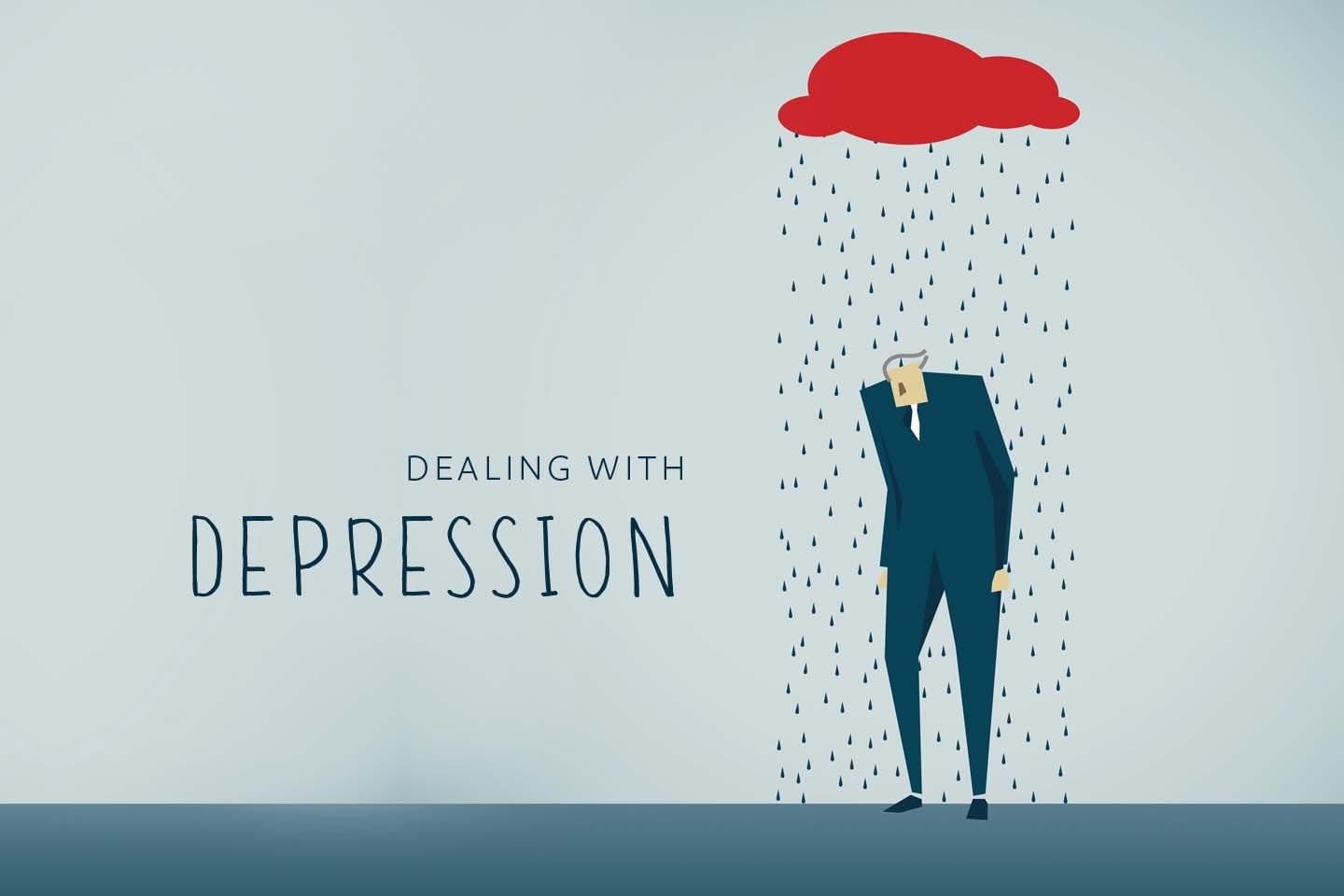
The way you think and feel affects what you do.
Have you ever had thoughts like these?
▪ “Everything is hopeless”
▪ “I’m worthless”
▪“The world is a terrible place”
These thoughts can make you feel sad and
frustrated. You might feel tired in your body and
decide to go back to bed instead of going to work or
being around other people. You may later regret
not going to work and feel even worse than you did
in the morning. You don’t do anything at home, call
out of work again and avoid seeing friends or
family. It’s thoughts and actions like these that
cause the cycle of depression.
Make the call to break the cycle of
depression.
First, call and make an appointment to see a
mental health professional or your physician.
They’ll ask you questions about how you feel and
why you feel this way. Your answers will help them
to figure out how to treat your symptoms. They will
then recommend one or several of the following
treatments:
Work with a therapist/counselor
▪ This is one of the best ways to treat depression.
Talking with a therapist or counselor can help
you:
▪ Address negative thought patterns
▪ Improve self esteem
▪ Learn to cope
▪ Learn to communicate your needs to others
▪ Learn new ways to tackle old problems
Combine medication with therapy
You may have medical problems that make you
feel the way you do. You may also feel this way
because of other medicines you take. Your doctor
might ask you to add or change medicines. Herbal
medicines may also help.
Practice self care
You must take care of your health every day.
Sleep, healthy foods, regular meals and exercise
are important to your health. And stay away from
drugs and alcohol. These can make feelings of
sadness worse.
You can also do the following things to practice self
care:
▪ Spend time with loved ones
▪ Pray or meditate
▪ Express yourself through art
Practice stress relief
Think about the things that make you feel stressed.
Stay away from extra stress and big changes. Take
action to reduce the stress by practicing these
stress management strategies:
▪ Reduce negative thinking – Think about the
thoughts that make your stress level worse.
You can then teach yourself to have thoughts
that will make you feel better. For example:
— If you lose your job, tell yourself “I will find
another job” instead of “everything is
hopeless”
— If your car breaks down, tell yourself “I will
find some way to get where I need to go”
instead of “I am stuck with no
transportation.”
Understand your emotions and allow
yourself to feel them – All feelings have a
purpose. They are a normal part of being
human. Think about why you have the feelings
you do. For example, you may be sad about the
death of a friend. You can tell yourself:
— “I feel sad that my friend is gone, but it
makes sense because I cared about her so
much.”
Include positive activities in your daily
schedule – Do things that make you have
positive thoughts and feelings. Try things you
have never tried before. This will make you
have better feelings. Stress will also be less of
a problem for you.
Communication is important – It is helpful to
have people you can talk to. Make time to talk
with someone you trust, like a friend or partner.
They can help give you support and guidance.
Keep a journal
Write out your feelings. This can help to calm your
sadness by helping you sort through your
problems. Sometimes writing can take the place of
talking to a friend when no one is available to talk.
Join a support group in your area
Support groups can help you to know that you are
not alone. Talking to others who feel the same way
lets you to talk about the way to feel. You also get
support from others who understand your feelings.
Visit websites and read books for ideas and
information
Find out more information on depression. Check
your local library or bookstore for books about
depression. You can also check online for helpful
information.
Read other peoples’ stories about how they got
over their depression. Type the following terms
into a search engine to see what comes up:
▪ ‘Depression blogs’ – These are written by
people just like you and may offer tips that
helped them feel better
▪ ‘Depression articles’ – These may be from
medical journals or newspapers and may
explain medical reasons for depression
▪ ‘Depression journal’ – These are like blogs
▪ ‘Depression support groups’ – Check for
support groups in your area.

